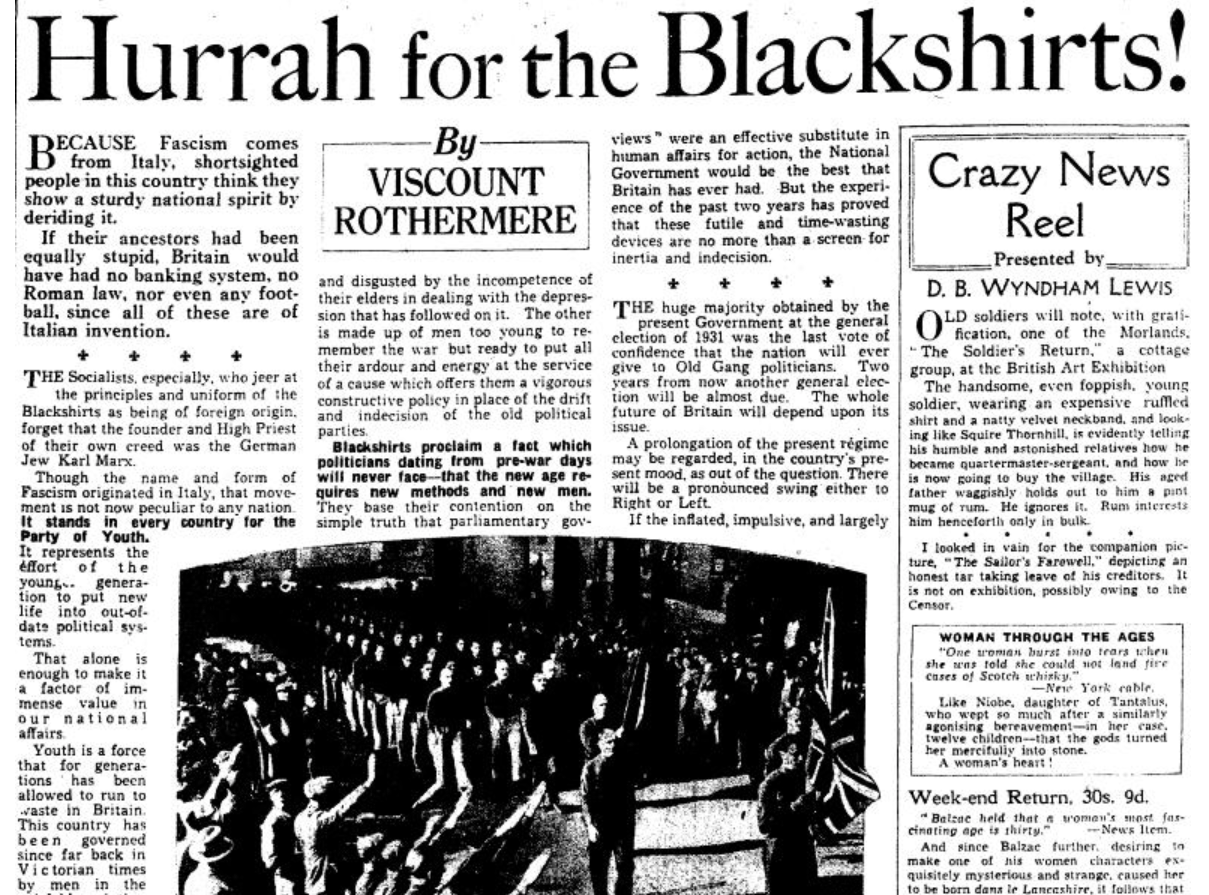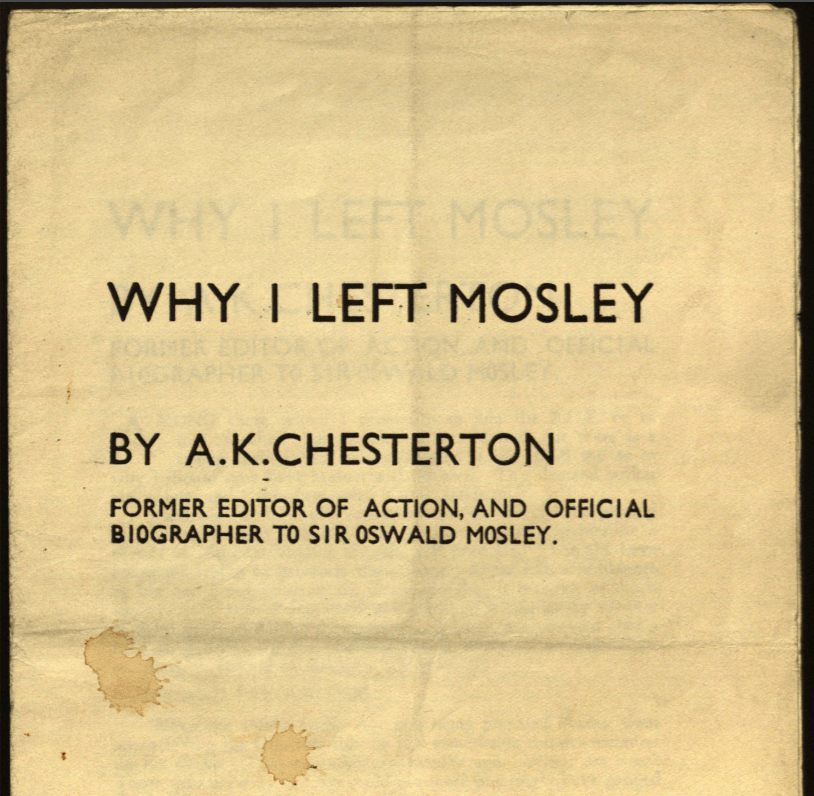Before the British Union of Fascists, Mosley had an active career in politics. By the age of twenty-two he was a Conservative MP (Member of Parliament). Then surprisingly, after the Conservative Party he became a member of the Labour party – which was due to his belief that the Labour Party was the only party willing to take action in Britain. He was very useful within the party for giving speeches and convincing the public to vote for Labour, and his main plea was to tackle unemployment. After Labour won the election, Mosley was given the job of tackling unemployment, but every proposal was rejected, and Mosley resigned from government. Eight months later in 1931, Mosley launched the New Party which lasted no longer than a year after the failings at the general elections. Then on the 1st October 1932, Oswald Mosley launched the British Union of Fascists.
The aims of the British Union of Fascists were to win power for Fascism, and thereby establish in Great Britain the Corporate State, which will ensure that:
- All shall serve the State and none the Faction
- All shall work and thus enrich their country themselves
- Opportunity shall be open to all but privilege to none
- Great position shall be conceded only to those of great talent
- Reward shall be accorded only to service
- Poverty shall be abolished by the power of modern science released within the organised state
- The barriers of class shall be destroyed and the energies of every citizen devoted to the service of the British Nation which, by the efforts and sacrifice of our fathers, has existed gloriously for centuries before this transient generation, and which by our exertions shall be raised to its higher destiny – the Greater Britain of Fascism
Mosley used clever tactics when the party first began to raise funds and membership. When recruits first joined they had to pay a monthly subscription and had to buy a black shirt from the headquarters of the BUF. But for the unemployed the BUF was a great opportunity, as they were given jobs in the party whilst being provided with free accommodation and pocket money. During the beginning Mosley also declared that nothing should be said in speeches that could be taken as antisemitic. He declared that “We do not attack Jews because they are Jews, we only attack them if we find them pursuing an anti-British policy’.
Mosley had a close connection with Mussolini, he visited him in April 1933 and used Mussolini as inspiration for his own fascist party. From very early on within the party Mussolini also gave Mosley donations, but this was continuously denied by him. One of his strategies was to not answer whether or not he was receiving money, but to ask what did it matter if he was?
He also had a close relationship with Lord Rothermere – the founder of the Daily Mail. In January 1934, Rothermere published an article in the newspaper ‘Hurrah for the Blackshirts!’, which marked the beginning of the support for the BUF. At points Rothermere allowed Mosley to write articles in the Daily Mail, promoting the party. He was also another individual to donate money to Mosley and proposed to him a scheme of creating BUF cigarettes, from which they could both profit.

Rothermere, Viscount, ‘Hurrah for the Blackshirts!’ Daily Mail (15 January 1934).
This support was lost after the Olympia Rally in June 1934. Mosley had many interruptions during his speech from anti-fascists, and couldn’t control the crowd, and it eventually turned into a violent affair between the two sides. But now the perception of the British Union of Fascists began to change. Rothermere met with Mosley and told him he had to withdraw his support from the party, as he couldn’t afford to lose advertisement from the community.
For a while the party reached an impasse until 1935 when Mosley announced his decisions to reform the party. He wanted to tighten discipline throughout the party, especially at the National Headquarters, and that the organisation of the party was to work along army lines.
Nevertheless, it wasn’t until 1939 when war was approaching that the BUF regained its old spirit, as Mosley launched the peace movement. But, when the treat of invasion was looming their advocacy of peace was no longer tolerated, and many members began to be arrested, including Oswald Mosley.
In this period of the BUF Mosley started to lose members and his most loyal followers. The most shocking departure from the party was probably A. K. Chesterton – he was once the editor of The Blackshirt and one of Mosley’s closest followers. He released a pamphlet on why he left, and it completely discredited Mosley’s character as a leader. It made him seem weak and incompetent, and it signalled the end of his political career.

Chesterton, A. K., Why I Left Mosley, n.d.
Sources:
R. Skidelsky, Oswald Mosley (New York : Holt, Rinehart and Winston, 1975).
N. Mosley, Beyond the pale: Sir Oswald Mosley and family, 1933-1980 (London : Secker & Warburg, 1983).
Written by Lydia Burton